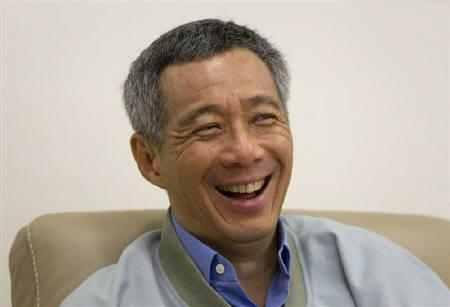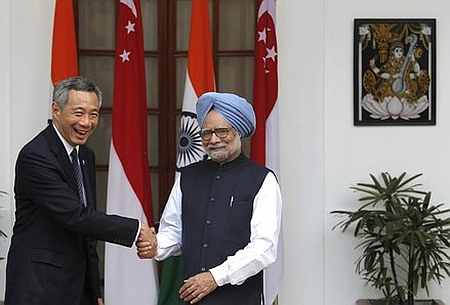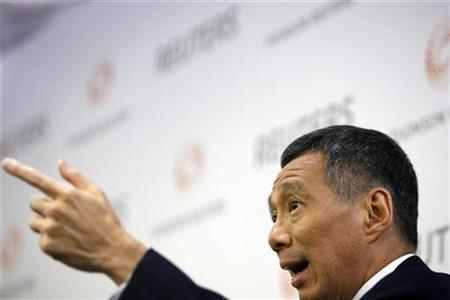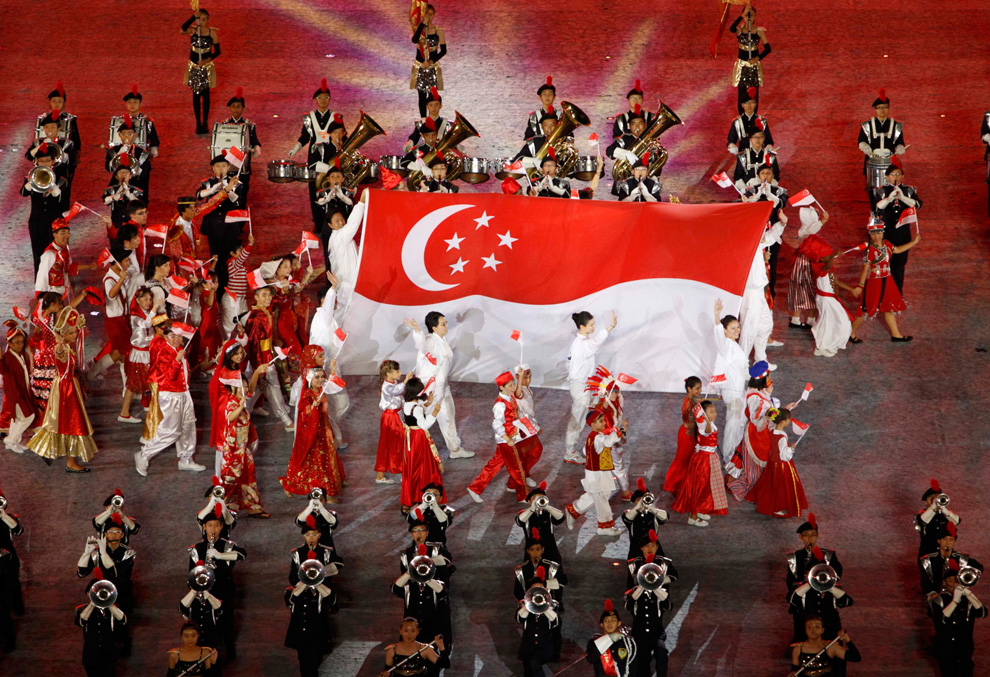 | « Back to article | Print this article |
We have no interest in being a money-laundering country: Singapore PM
Lee Hsien Loong, Prime Minister of Singapore, believes bilateral economic ties between his country and India can be significantly enhanced, if India builds up a stable policy regime to soothe investors' nerves. He said India should get its record straight and not indicate Singapore as a black-money hub.
During your address to the Indian business chambers, you said the Indian business environment is complicated. Were you referring to the recent draft guidelines on tax avoidance rules or retrospective amendments to the income tax law? Can you throw some light on your statement?
Well, there are a range of matters that the Singaporean companies have encountered when they wanted to invest in India. I think the specifics are very complicated.
As I explained on Thursday, when a company invests in a particular project, and it is very often a big one in India, it involves a lot of money, a long gestation, a long payback period and a necessity of predictability of the environment in which they are going to operate.
There could be ups and downs in the market risks, but regulatory risks and political risks, if minimised I think will make it much easier for the companies to come in and invest.
Click NEXT to read more...
We have no interest in being a money-laundering country: Singapore PM
The rules in India are complex, you have many levels of government and the requirements sometimes vary, it is unavoidable and other times it calls for a concern to the companies, which have already committed and those which have not yet committed. These will have to make an assessment whether they want to take the risk.
Some of the issues can be mitigated to bring in these investments. We worked with our companies and assembled a brief of some of the issues.
I do not think it is helpful to air dirty linen in public, but we have conveyed this to the Indian authorities and we are hopeful that they will look into the matter. When I met the Prime Minister (Manmohan Singh), I mentioned this issue.
Click NEXT to read more...
We have no interest in being a money-laundering country: Singapore PM
There are concerns in some sections here that Singapore is a hub for black money. What are your thoughts on this?
We have no interest in being a money-laundering country. We are a financial centre in good standing, having good cooperation with other financial centres and regulators, good exchange of information of OECD standards. Why should we want to do this shady business?
Between India and Singapore we have a DTAA (Double Taxation Avoidance Agreement), negotiated back in 2005. It provides for rules for tax treatment of investments in India by Singapore companies or companies based in Singapore and to make sure that these are bona fide and not just shell companies.
There are also stringent LOB (limitation of benefits). So, I do not think shady money wants to come to Singapore.
Click NEXT to read more...
We have no interest in being a money-laundering country: Singapore PM
I think shady money will go somewhere else. I know that there are some sentiments in India that investors from Singapore are such a lot when it is a small country. Investments to India from Singapore comprise three per cent of our total investment.
So, that is not a startling proportion. This was one of main items in CECA, that it should lead to major investments from Singapore and I am happy that has happened. So, I think it is a good thing that large investments have come in.
We were a bit surprised to read the white paper on black money, which the Indian government had published and to find ourselves mentioned there and to have it suggested that the amount is disproportionate and some round-tripping is involved.
I think that is not correct. We have informed the Indian government on this matter to put the record straight. Yesterday, when I met the PM, I raised this issue and he acknowledged my point.
Click NEXT to read more...
We have no interest in being a money-laundering country: Singapore PM
Why is the review of the India-Singapore Comprehensive Economic Cooperation Agreement (CECA) taking long? What are your main demands?
This is a second review of the CECA. It was completed and signed in 2005. We had one successful round earlier. This is the second round of review.
It is taken a bit longer than we expected but we (Prime Minister Lee and Prime Minister Singh) have both agreed to instruct our people to expedite the matter.
And we hope that will be done by the end of this year during the ASEAN-India Commemorative Summit when I will be back here in New Delhi. There is no specific difficulty just that the matter has taken a bit long.
Click NEXT to read more...
We have no interest in being a money-laundering country: Singapore PM
On Singapore side we hope to have more favourable tariff treatment of some goods as well as rules of origin that are to be eased and also ensure market access for some services.
On the Indian side I think there is interest in concluding mutual recognition agreement on some professions such as nursing. So we are discussing a package. It is a modest package but we would like to settle it, pin it down and move on.
Click NEXT to read more...
We have no interest in being a money-laundering country: Singapore PM
Why is the India-ASEAN services deal stuck? What do you think are main problem areas?
Well the services and the investment deal also are not settled. I think services is perhaps more complex and sensitive than goods in any country and in India too because there are many different services each of which want to see that their prerogatives are protected.
On the ASEAN side it is not easy to negotiate either because there are 10 countries which have to sign-off on this. We wish it was settled earlier but we will do what we can as one of the ASEAN countries to try and get it settled by the 20th anniversary of India-ASEAN relations.






